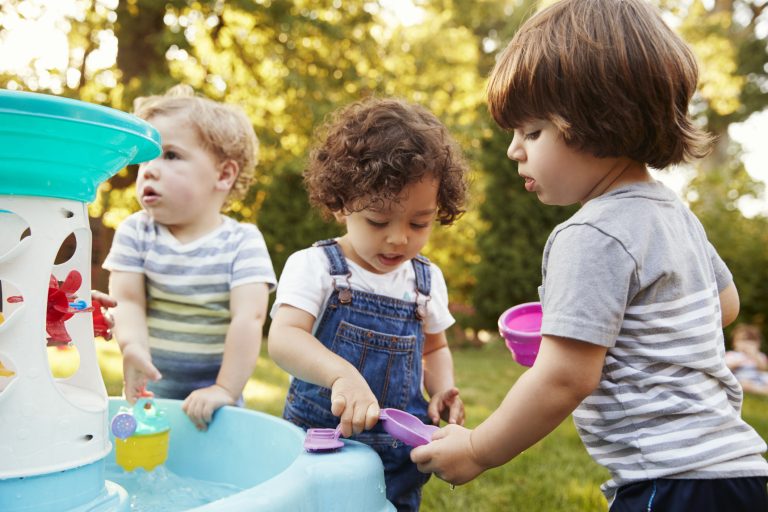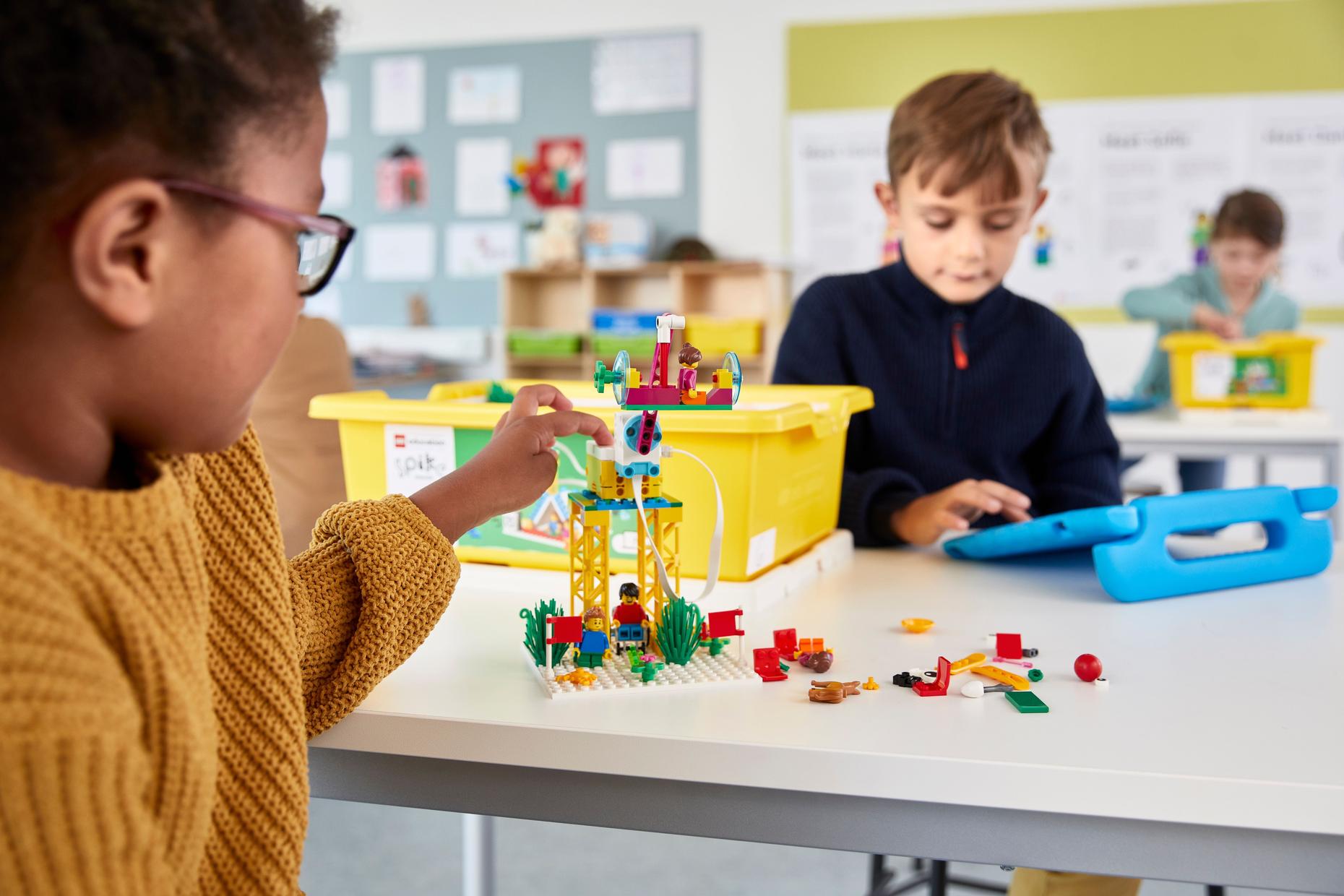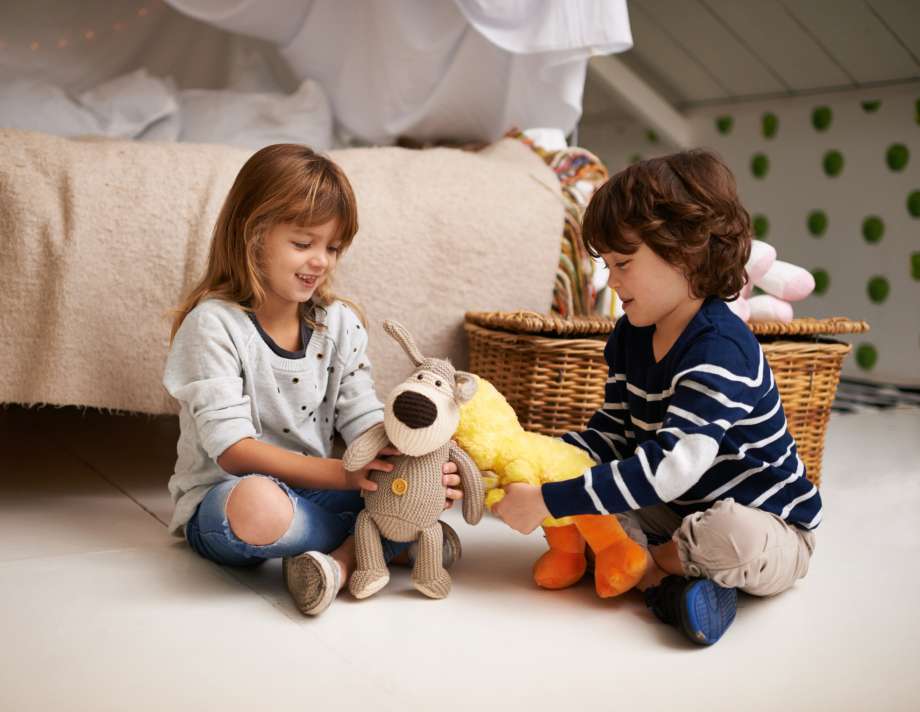Three Key Aspects of Gender-Neutral Child Rearing
In gender-neutral child rearing, focus on fostering emotional intelligence, challenging gender stereotypes, and providing gender-neutral toys. Encouraging emotional awareness helps children communicate effectively and manage feelings. Challenging stereotypes lets children explore without limits, shaping their interests positively. Gender-neutral toys promote inclusivity and creativity, breaking away from traditional norms. These aspects support children in building a strong sense of self and acceptance. These key elements form a foundation for creating an environment where children can thrive authentically and compassionately.
Key Takeaways
- Providing gender-neutral toys for diverse play experiences.
- Fostering open communication about gender expression.
- Creating inclusive environments with gender-neutral clothing.
- Educating on gender diversity and individual differences.
- Supporting personal identity exploration and self-expression.
Understanding Gender Expression

Understanding gender expression involves recognizing how individuals outwardly display their gender identity through various behaviors and appearances. Gender fluidity refers to the concept that gender identity can change over time and may not necessarily align with the sex assigned at birth. This fluidity allows for a spectrum of gender expressions beyond traditional male and female roles.
Expression exploration encourages individuals to experiment with different ways of presenting their gender, whether through clothing choices, hairstyles, or mannerisms. By exploring different expressions, individuals can better understand and communicate their gender identity to others.
Research shows that allowing for expression exploration can lead to greater self-acceptance and improved mental well-being. Encouraging individuals, especially children, to freely explore and express their gender identity can foster a sense of authenticity and confidence. It’s essential to create a supportive environment that values gender diversity and respects individuals’ choices in how they express themselves.
Through open-mindedness and acceptance, individuals can navigate their gender identity with a greater sense of freedom and self-assurance.
Encouraging Open Communication

In order to promote open communication in gender-neutral child rearing, fostering honest family conversations where children feel heard and valued is crucial.
By cultivating an environment of trust and understanding, parents can create a space where children feel safe to express themselves authentically.
Encouraging open dialogue helps bridge any communication gaps and allows for a more inclusive and supportive upbringing for children.
Honest Family Conversations
Encouraging open communication within your family is vital for fostering trust and mutual understanding among all members. Parent-child dialogues about gender identity and family talks regarding gender fluidity are essential in creating a supportive environment for children to express themselves authentically.
Research shows that families who engage in honest conversations about gender-related topics tend to have children who develop a healthier sense of self-awareness and acceptance.
When discussing gender identity with your child, it’s important to create a safe space where they feel comfortable sharing their thoughts and feelings. Encourage an open dialogue by actively listening, asking open-ended questions, and validating their experiences.
Family talks about gender fluidity can help children understand that gender is a spectrum and that it’s okay not to conform to traditional gender norms.
Cultivating Trust and Understanding
Fostering an environment of trust and understanding within your family involves creating opportunities for open communication that allow for genuine dialogue and mutual respect. Building empathy and promoting respect are essential components in cultivating trust and understanding among family members.
Encouraging open communication channels where everyone feels heard and valued can help strengthen the bond within the family unit.
Research indicates that families who engage in open discussions tend to have healthier relationships and a deeper understanding of each other’s perspectives. By actively listening to one another and validating each other’s feelings, family members can build empathy and develop a sense of trust that fosters a supportive environment.
Setting aside dedicated time for family conversations, establishing a safe space for sharing thoughts and emotions, and encouraging active participation from all members can contribute to creating an atmosphere of trust and understanding within your family.
Providing Gender-Neutral Toys

When selecting toys for children, prioritize options that aren’t gender-specific to promote inclusivity and reduce stereotypes. Toy selection plays a significant role in shaping children’s perceptions of gender norms.
Providing gender-neutral toys can help children explore a wider range of interests and develop diverse skills without feeling limited by societal expectations.
Research suggests that children benefit from playing with a variety of toys that aren’t strictly categorized as ‘boys’ or ‘girls’ toys. Gender-neutral toys, such as building blocks, puzzles, or art supplies, encourage creativity, problem-solving, and spatial skills in all children, regardless of their gender.
Fostering Emotional Intelligence
To enhance children’s emotional intelligence, it’s essential to cultivate their awareness of emotions and teach them effective coping strategies for managing feelings. Empathy development and social skills play vital roles in fostering emotional intelligence. By encouraging children to recognize and understand their own emotions, as well as those of others, parents and caregivers can help them develop a strong sense of empathy.
This understanding of emotions can lead to better communication and relationships with peers.
Moreover, promoting emotional awareness and self-regulation is key to nurturing emotional intelligence in children. Teaching kids how to identify and express their feelings in a healthy way can contribute to their overall well-being. By providing them with tools and strategies to regulate their emotions, such as deep breathing exercises or mindfulness techniques, children can learn to manage stress and cope with challenging situations effectively.
Challenging Gender Stereotypes
Encouraging stereotype-free play allows children to explore a wide range of interests without feeling limited by traditional gender norms.
Introducing diverse role models from various backgrounds can help broaden children’s perspectives and challenge preconceived notions about what’s considered ‘appropriate’ for their gender.
Stereotype-Free Play
Playing an important role in challenging traditional gender stereotypes through stereotype-free play is essential in promoting gender-neutral child rearing. Unstructured play provides children with the freedom to explore their interests without the constraints of societal expectations based on gender. This type of play allows for creative expression, enabling children to develop a sense of self outside of rigid gender norms.
Research shows that when children engage in unstructured play, they’re more likely to experiment with different toys and activities regardless of their perceived gender appropriateness. By encouraging this type of play, parents and caregivers can create an environment where children feel empowered to make choices based on their preferences rather than societal expectations.
Through activities that promote creative expression, such as painting, building, or storytelling, children can develop essential skills without the limitations of gender stereotypes. By fostering an environment that values individual interests and talents over gender norms, stereotype-free play can play an essential role in shaping children’s perceptions and behaviors towards gender neutrality.
Diverse Role Models
Frequently, exposing children to diverse role models can effectively challenge traditional gender stereotypes and promote gender-neutral child rearing. Inclusive representation of various genders, ethnicities, abilities, and professions in children’s lives can have a significant impact on shaping their understanding of gender roles and expectations.
Positive influences from a diverse community can help children see beyond traditional norms and embrace a more inclusive worldview. Research suggests that children who’ve empowering connections with diverse role models are more likely to develop a broader perspective on gender roles and possibilities.
By witnessing individuals breaking stereotypes and excelling in various fields regardless of gender, children learn that their aspirations aren’t limited by societal expectations based on gender. Encouraging interactions with diverse role models can inspire children to explore a wider range of interests and goals, fostering a more inclusive and accepting mindset.
Creating Inclusive Environments

Establishing inclusive environments is essential for fostering gender-neutral child-rearing practices that prioritize equality and acceptance. When it comes to creating such environments, two key aspects to focus on are gender-neutral clothing and inclusive language.
Gender-neutral clothing plays an important role in promoting equality among children. By offering a diverse range of clothing options that aren’t limited by traditional gender norms, children are encouraged to express themselves freely without feeling constrained by societal expectations. This allows them to explore their identities without restrictions, fostering a more inclusive environment.
Inclusive language is another significant component of creating an environment that supports gender-neutral child rearing. Using language that’s gender-neutral and inclusive helps to break down stereotypes and promotes equality among all children. By avoiding gendered terms and embracing more inclusive language, caregivers and educators can create a welcoming space where children feel accepted and valued for who they are, regardless of gender.
Educating on Gender Diversity
How can caregivers and educators effectively educate on gender diversity to support gender-neutral child rearing practices?
Understanding gender diversity is essential in creating inclusive environments for children. Caregivers and educators play a pivotal role in shaping children’s perceptions of gender identity and fostering social acceptance.
Educating on gender diversity involves introducing children to the concept that gender isn’t binary but rather a spectrum. It’s vital to teach children that individuals may identify beyond traditional male and female categories.
By incorporating diverse gender representations in books, toys, and activities, caregivers and educators can help children develop a more nuanced understanding of gender identity.
Moreover, promoting social acceptance involves teaching children to respect and celebrate individual differences. Encouraging open discussions about gender diversity, addressing stereotypes, and modeling inclusive behavior can positively impact children’s attitudes towards gender.
Supporting Personal Identity
Supporting personal identity involves acknowledging and affirming an individual’s unique sense of self within a diverse and inclusive context. Encouraging children to explore their interests without conforming to traditional gender stereotypes is essential in nurturing a strong personal identity. By providing a wide range of activities and toys, you allow children to discover what truly interests them, free from societal expectations.
Celebrating uniqueness is another vital aspect of supporting personal identity. Emphasizing that it’s okay to be different and encouraging individuality helps children develop a sense of self-worth based on their authentic selves. By promoting self-expression and valuing diversity, you create a nurturing environment where children feel empowered to embrace their unique qualities.
Research shows that children who are supported in exploring their interests and celebrating their uniqueness are more likely to develop a strong sense of personal identity and exhibit higher self-esteem. By fostering a space where individuality is cherished, you lay the foundation for children to confidently express who they are without fear of judgment.
Embracing Individuality

Encouraging children to embrace their individuality fosters a strong sense of self and promotes authentic self-expression. Celebrating uniqueness is essential in fostering a child’s self-confidence and resilience. By promoting self-expression, parents and caregivers support the development of a child’s identity based on their true selves rather than conforming to societal expectations.
Research indicates that children who are encouraged to embrace their individuality show higher levels of self-esteem and are better equipped to navigate challenges. When children feel free to express their unique interests, strengths, and personalities, they’re more likely to develop a strong sense of self-worth and belonging.
Allowing children to celebrate their uniqueness also fosters creativity and innovation. When children are empowered to express themselves authentically, they’re more likely to think outside the box and explore new ideas. This not only benefits their personal growth but also contributes positively to society as a whole.
Embracing individuality is an integral aspect of gender-neutral child rearing that promotes holistic development and well-being.
Frequently Asked Questions
Can Gender-Neutral Child Rearing Suppress a Child’s Natural Preferences?
Gender-neutral child rearing encourages exploring interests without stereotypes. While some worry it may suppress natural preferences, studies show it supports healthy gender identity development by prioritizing parental support and child autonomy.
How Can Parents Address Resistance From Family Members?
When addressing resistance from family members regarding gender-neutral child rearing, consider family dynamics. Open communication is essential. Set boundaries firmly but kindly. Educate relatives on the benefits of this approach. Collaboration and understanding are key.
Are There Specific Challenges in Raising Gender-Neutral Children in School?
Understanding school policies and social interactions can pose challenges when raising gender-neutral children. Peer influence and the educational environment play significant roles in shaping attitudes. Grasping these dynamics is essential for supporting children’s well-being and development.
What Are Effective Ways to Handle Societal Judgment and Criticism?
When handling criticism and societal judgment, educating others on your perspective while setting clear boundaries becomes crucial. Communicate openly, provide information, and stand firm in your beliefs to promote understanding and respect.
How Can Parents Navigate Legal Documentation for Gender-Neutral Identification?
When maneuvering legal documentation for gender-neutral identification, parents can seek parental support and resources from organizations specializing in LGBTQ+ rights. These groups offer guidance on legal processes and advocate for inclusive policies.
Conclusion
To sum up, embracing gender-neutral child rearing involves:
- Understanding gender expression
- Encouraging open communication
- Providing gender-neutral toys
- Fostering emotional intelligence
- Challenging stereotypes
- Creating inclusive environments
- Educating on gender diversity
- Supporting personal identity
- Embracing individuality
By incorporating these key aspects into parenting practices, children can develop a healthy sense of self and a respectful understanding of gender diversity in society.
It’s important to prioritize these principles to create a more inclusive and accepting environment for all children.

Chad Adan Kace, a young dad from Vermont, shares his parenting journey with a touch of humor and lots of love. Father to a lively baby, he explores the joys and challenges of fatherhood through his stories.







